Ecommercestrategychina.com uses cookies and other technologies to provide you a better browsing experience. You can get more information regarding the use of cookies, or decline it whenever by clicking Privacy Policy. By using this site or clicking “Okay”, you give us the consent to the use of cookies.
OKAY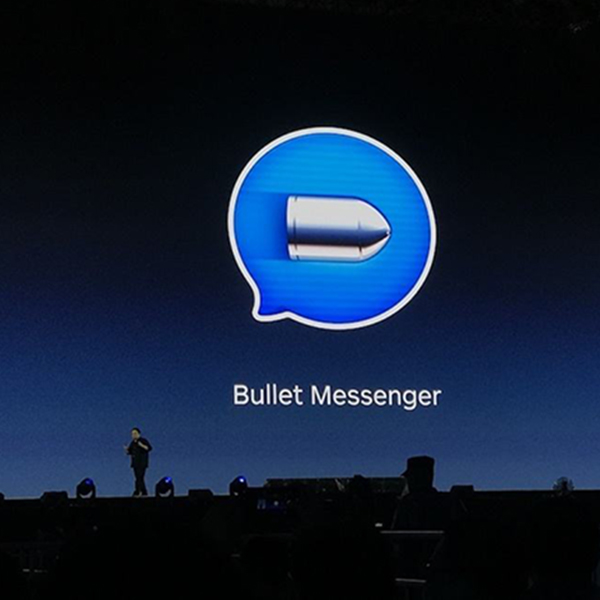
Bullet Messenger has won more than 4 million users within 10 days of its release! Will it be the next WeChat or the social app to replace WeChat?
A new instant messaging App, Bullet Messenger (released by Smartisan and developed by Techcrunch), was released in China on August 20 and topped the free social networking apps in the Chinese App store for the next four days (from August 23 to August 26). The Bullet Messenger attracted 54 investment institutions 7 days after its launch and closed the first round of financing of RMB 150 million (led by Chengwei Capital and Gaorong Capital). On August 30, it had more than 4 million active users.
The momentum of Bullet Messenger has led the industry to speculate that it could become a competitor to WeChat. But Yonghao Luo, founder of Smartisan, said: "Bullet is not a challenge to WeChat. It is just a subdivision for a group of people who require communication efficiency."
What is the difference between Bullet Messenger and WeChat?
Although the main function of Bullet Messenger is instant communication which is like WeChat, it has the following innovations to improve communication efficiency:
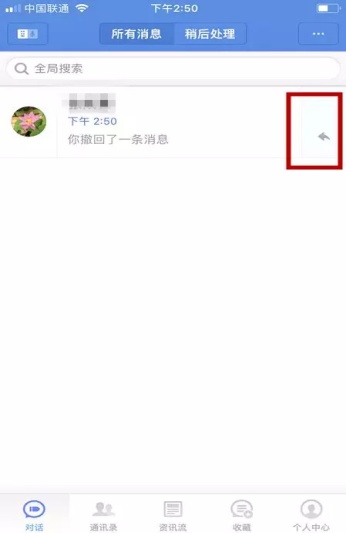
As long as the "Assistive touch" function is activated, users do not need to enter the App, but press the levitation button on the desktop of the mobile phone to send voice messages directly to the contacts. (This feature is currently available for Android only.) In addition, users can reply to messages directly in the buddy interface of the Bullet Messenger, without selecting friends on WeChat to access the dialogue interface. You do not have to switch the interface back and forth if you need to communicate with multiple people at the same time, which is more efficient and convenient than WeChat.
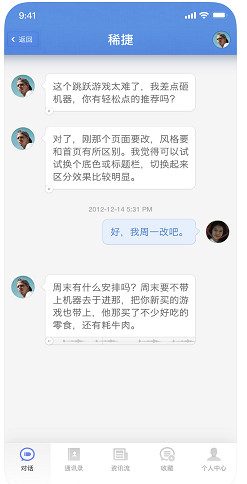
Voice to text is not new. However, Bullet Messenger achieves a real-time voice to text function. When the user inputs something, the software will present the content of the voice input with text in real-time and sends "voice + text" at the same time. In this way, the other party can read the text directly if it is inconvenient to check the voice message. It improves communication efficiency for users when they are in meetings, noisy environments and other scenarios. The voice recognition rate of Bullet Messenger is officially estimated to at 97 percent.
In addition, the user can drag the progress bar when playing the voice message. If you are interrupted while listening a 50-second voice, you do not have to start over, just pull it to the point where you have just been interrupted. This function is not supported by Wechat.
If some things or tasks need to be processed later in a conversation, they can be marked as "reply later". This information is added to the "reply later" bar in the form of an action.
Besides, Bullet Messenger has many user-friendly interaction functions, such as sending messages directly to friends in the address book, checking the first conversation record to help you remember who they are, supporting multi-terminal logins and message cloud synchronisations, and avoiding lengthy information transfer operations.
What problems does Bullet Messenger aim to solve?
Although many media reports have regarded Bullet Messenger as a social application and a challenge to WeChat, its various features, such as adding conversations to to-do lists and simultaneously sending voice and text messages, are more akin to Alibaba’s Dingding. In short, Bullet Messenger is a social application designed to target individuals to improve communication efficiency.
Bullet Messager was originally developed because existing social solutions could not perfectly meet the communication needs of the office, says the founder. "We have used Dingding and WeChat at work, but have encountered a variety of problems. Dingding is not good enough in communication, while life and work are mixed on WeChat." So they wanted to create a local product like Slack that focuses on office communications.
"We wanted an application that covered everything in the office, from chats, emails, to-do lists, documents, web disks, surveys, etc." Unlike WeChat, which targets the general public, Bullet Messenger is aimed at individuals who need to process large amounts of information efficiently. For example, a business executive may receive numerous messages from subordinates, colleagues, superiors and suppliers every day.
What can Bullet Messenger do in the future?
Apart from its own unique selling point of efficiency, the explosive popularity of Bullet Messenger is mainly due to the fact that Yonghao Luo(founder of Smartisan Technology) brought the traffic himself. Compared to other mobile phone manufacturers in China, Smartisan always had a large number of individual fans following Yonghao Luo. But after the initial enthusiasm is over and the many users who have accumulated at the beginning can not be activated on the app, Bullet Messenger will be a short hit.
Where will Bullet Messenger go in the future? In the WeChat ecology, our WeChat friends have already exceeded the contact list friends. How to attract users from WeChat to Bullet Messenger by asking them to add friends by searching the phone number? Maybe Techcrunch has not figured out the product definition yet. Its founders say it is possible to add information in the future, guide users to build groups, add features like WeChat Moment, and then decide which features to keep according to user feedback. Bullet Messenger now provides news and information and is working with Toutiao to improve user retention.
Bullet Messenger improves some WeChat weakness, and is more conducive to people’s work. But the lack of functions such as "WeChat Moment" makes it impossible to create a social circle around the work scenario. The next step for Bullet Messenger should be the subdivision of the scenarios. In addition, Bullet Messenger needs to motivate users to engage in social interaction and share with other users. Otherwise, it may well have been just a flash in the pan.
Take a closer look at what's going on in China's social market through
Please Login to add comments.
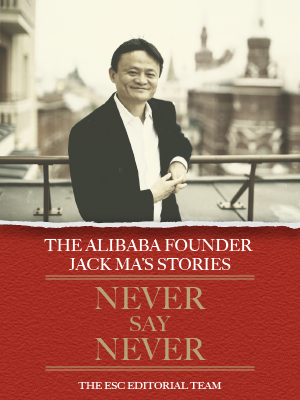
$9.99 $19.98
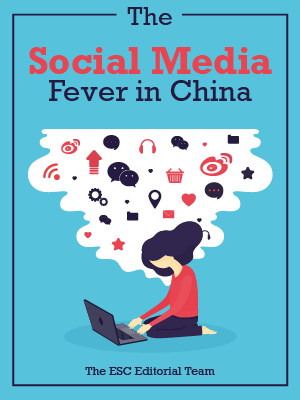
$9.99 $19.98